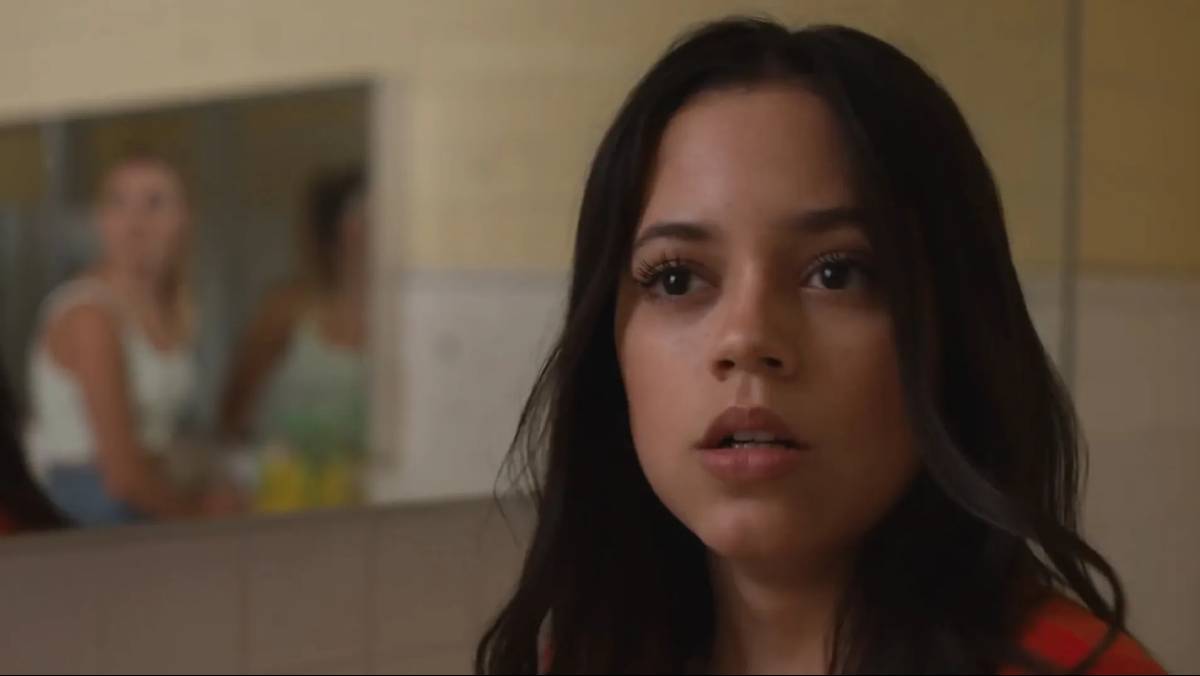The Fallout captures the emotionally grueling aftermath of a high school shooting, and at the four-year mark of Parkland, we’re reminded how Gen-Z is still fighting for their lives.
TW: The following article discusses school shootings and gun violence.
Mass shootings happen fast…really fast. In 24 minutes, 10 were murdered in Santa Fe High School. In 6 minutes, 17 were murdered in Stoneman Douglas High School. In 5 minutes, 26 were murdered in Sandy Hook Elementary School. These tragedies amount to an immeasurable loss of lives– a loss that echoes across communities, classrooms, and dining room tables weighted in silence. February 14th marked the four-year anniversary of the Parkland, Florida shooting in Stoneman Douglas High School as I sat to watch The Fallout–a coming-of-age story set amidst the wake of a deadly school shooting.
When I heard the premise of The Fallout, I was expecting the typical formula we see in films about school shootings. A menacing young teen plots revenge enters school grounds, and shoots innocent bystanders in a painful, slow-motion finale–see Zero Day or We Need To Talk About Kevin. What I didn’t expect from The Fallout is the palpable silence. The silence in the immediate aftermath of a shooting. The suspenseful, pin-drop hush when the shooter’s rounds ran out. The silence of those in hiding, as they held their breath in fear of being discovered. The silence of coming home to people who will never fathom the trauma. The silence of hallways, classrooms, places that were once vibrant. It’s a silence no child should have to experience.
In a directorial debut for Megan Park, The Fallout shines, but not merely in its focus on the actual shooting itself. It’s how it portrays coping in the tragic aftermath. For some young teens, it manifests into an immense fury and rage that channels into protests. And at times, it’s a deep wave of grief that can only be digested over time.
Jenna Ortega pulls a tour-de-force performance as spunky and spontaneous Vada Cavell, who befriends popular dancer Mia Reed (played by Maddie Ziegler) after both survive the shooting. What embarks is Vada’s own journey of grief, from survivors’ guilt to an understanding that it’s ok to scream, cry, and find support in those around you. Park’s directing is subtle in a topic that is so weighty and brooding. She lifts the tension with typical teens that idle in the pool, tries their first joint, dance in the streets, and order a bunch of junk food to share with friends.
Jenna Ortega as Vada Cavell (left) with Maddie Ziegler as Mia Reed.
While the film itself seems to lag in moments, its cinematography finds its sweet spot capturing Gen-Z’s state of boredom. Amelia, Vada’s younger sister, repeatedly rehearses a viral dance in the living room while Vada texts Mia on the couch. In times of suffering and nationwide trauma, everyone can likely relate to Vada indulging in reality television or her sister finding community on TikTok.
Vada with her sister Amelia (played by Lumi Pollack).
At one point, Vada is pushed by her doting and concerned parents to see therapist Anna (impressively played by Shailene Woodley). In one of many conversations, Vada is asked to be in touch with her feelings. In an emotional scene, Vada blurts out:
“I feel…mad, because I had no idea one guy with a gun could fuck up my life so hard in six minutes.”
Six minutes was the same timing for the mass shooting at Stoneman Douglas high school in Parkland, Florida (6 minutes and 20 seconds, to be exact).
I still remember the days after Parkland and the mass movement that would be known as the March For Our Lives. Of the many protestors, I was particularly intrigued by activist X González. X spoke at the March For Our Lives protest in Washington DC and, at one point, stood in silence for six minutes facing a roaring crowd in Washington DC. These six minutes were so powerful as the crowd moved from applauding to yelling, and then slowly descended into discomfort and finally silence. A crowd was left to meditate on the sheer loss that could never be salvaged. This speech helped me understand what an incredible feat it is for survivors to speak up against gun violence while undergoing immense grief.
I think a lot about young activists like X González or Edna Chavez. I’m proud of how communities have lifted their voices and yet, I feel enraged when such vulnerable adolescents are put at risk by huge institutions like the National Rifle Association and senators who’d rather berate them than focus on gun control. In these debates, a binary cements itself: shooters are “insane” monsters, and these survivors either become American heroes or too radical. All the while, we miss the mark on how these conditions were made possible in the first place. And the process repeats—shooting, uproar, thoughts & prayers, protest, suffering, and silence. In all this, we leave the brunt of the movement to fall back on young Black and Brown youth who experience gun violence on an ongoing basis.
I could delve into gun-control policy solutions and their implications, but I believe The Fallout and protestors like X remind us of something far more important and it’s this: we need to lean into each other. Young survivors deserve moments of comfort, care, and action–not just applause on the sidelines. Maybe we can find solace that it may not be ok now or tomorrow, but that it can get better when we show up for one another. And finally, not leave another generation in silence.

